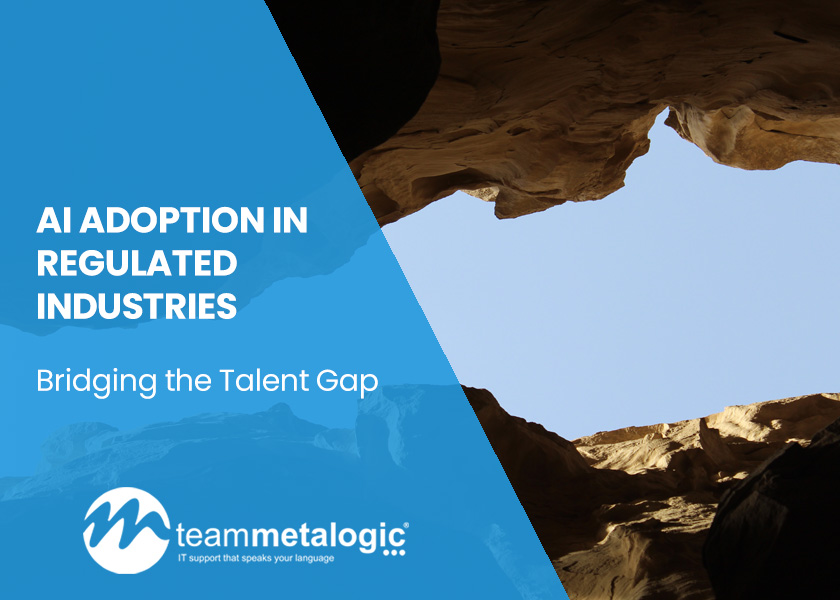Addressing the Lack of Skilled Personnel in AI-Driven Regulated Industries
In today’s digitally driven landscape, Artificial Intelligence (AI) has become a driving force behind innovation and efficiency across regulated industries in the United Kingdom. Sectors such as finance, healthcare, and legal services are increasingly turning to AI to streamline operations, enhance decision-making, and ensure compliance with stringent regulations. However, a pressing challenge faced by these industries is the scarcity of skilled personnel with expertise in AI. In this article, we delve into the significance of this shortage, its impact on regulated sectors, and strategies for addressing the lack of skilled AI professionals.
The Importance of Skilled Personnel in Regulated Industries
Regulated industries are bound by complex rules, standards, and ethical considerations that demand meticulous attention to detail. The utilisation of AI technologies in these sectors brings both opportunities and challenges:
- Compliance and Regulation: Regulated industries must adhere to strict compliance and regulatory standards. Skilled personnel are essential for ensuring that AI applications meet these requirements.
- Data Security and Privacy: Handling sensitive data in sectors like healthcare and finance necessitates robust data security and privacy measures. Skilled professionals are crucial for safeguarding confidential information.
- Risk Mitigation: The use of AI introduces new risks, including algorithmic bias and ethical dilemmas. Skilled personnel are needed to identify and mitigate these risks effectively.
- Maximising AI Benefits: To fully harness the potential of AI, organisations require skilled personnel who can design, implement, and optimise AI systems to deliver optimal results.
Challenges Posed by the Lack of Skilled AI Personnel
- Talent Shortage: The demand for skilled AI professionals exceeds the available talent pool, making it challenging for regulated industries to recruit qualified individuals.
- Competition: Highly qualified AI experts are often lured by the allure of technology giants and startups, making it challenging for regulated organisations to attract and retain top talent.
- Training Costs: Developing in-house AI expertise can be expensive and time-consuming. It often involves extensive training and upskilling programs.
- Complexity: The regulatory environment in sectors like healthcare and finance is intricate. AI professionals need to understand both the technology and the sector-specific regulations.
Addressing the Lack of Skilled AI Personnel
To bridge the talent gap in regulated industries, organisations can implement the following strategies:
- Invest in Training and Education:
- Develop in-house training programs to upskill existing employees in AI technologies.
- Partner with educational institutions to create tailored AI training courses.
- Encourage employees to pursue AI certifications and degrees to enhance their expertise.
- Collaborate with Managed IT Service Providers:
- Partner with managed IT service providers with expertise in AI.
- These providers can offer AI services and solutions, reducing the need for in-house expertise.
- Leverage their knowledge to navigate AI adoption while ensuring compliance.
- Attract Top Talent:
- Offer competitive salaries and benefits to attract AI professionals.
- Create a compelling work environment that emphasises the ethical and social impact of AI applications.
- Emphasise Ethical AI Practices:
- Prioritise ethical AI practices in recruitment and daily operations.
- Establish clear guidelines for AI developers and users to ensure ethical decision-making.
- Encourage Diversity:
- Recognise the value of diversity in AI teams.
- Diverse teams can bring different perspectives and reduce bias in AI applications.
- Leverage AI Tools:
- Implement AI tools and platforms that automate routine tasks, reducing the workload on human personnel.
- This allows existing staff to focus on higher-level AI-related tasks.
- Support Industry Initiatives:
- Collaborate with industry associations and regulatory bodies to develop AI talent pipelines.
- Support initiatives that promote AI education and awareness.
- Outsource AI Projects:
- Consider outsourcing AI projects to AI consulting firms or managed IT service providers.
- This can provide access to AI expertise without the need for in-house teams.
What next?
The integration of AI into regulated industries has the potential to revolutionise operations, enhance decision-making, and ensure compliance with regulatory standards. However, the scarcity of skilled personnel with expertise in AI poses a significant challenge. Addressing this shortage is imperative for regulated sectors to fully leverage the benefits of AI while upholding the highest standards of compliance and ethics.
By investing in training and education, collaborating with managed IT service providers, attracting top talent, emphasising ethical AI practices, and supporting industry initiatives, regulated industries can navigate the talent gap effectively. These strategies not only enhance AI adoption but also contribute to the continued growth and success of regulated sectors in the AI-driven era.
Links
OECD
https://www.oecd-forum.org/posts/how-ai-might-change-our-jobs-what-we-can-do-about-it
UK Government

